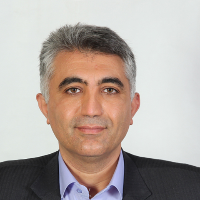Developing and Validating of Happy Brain Curriculum Framework in Primary School
The purpose of the present study was to design and validate the happy brain curriculum framework in primary school. This research was one of the mixed researches of consecutive exploratory type and classification model which was performed in two qualitative and quantitative stages. The qualitative part was performed using the meta- synthesis method in seven stages of Sandloski and Barroso (2007). The Happy Brain curriculum framework was designed in the elements of goals, content, teacher role, student role, teaching methods, evaluation, teaching materials, place and time of teaching. Afterward the quantitative section was defined to validate mentioned framework. The quantitative part was performed using the descriptive survey method and the researcher-made scale. The statistical population of this section was primary school teachers, and the relevant tools were distributed among 65 primary school teachers in Shiraz. In order to determine the validity of the scale, the content validity method and the calculation of the content validity ratios and content validity were used. Quantitative data were analyzed using the confirmatory factor analysis method, which finally revealed that the happy brain curriculum framework in the primary school has the necessary validity.
-
Designing a Model of Historical Reasoning Skills For History Students
Mehdi Mohammadi *, Masoumeh Dehghan, Reza Naserijahromi, Parastoo Nabeei, Marzieh Mesgarpoor, Solmaz Khademi
Journal of Curriculum Research, -
Exploring the Dos and Don’ts of Curriculum Survival in Higher Education: An Evaluative Review.
Mehdi Mohammadi *, Raziye Shirin Hesar, Reza Naseri Jaahromi
Journal of Theory and Practice in Curriculum, -
A Multi-Qualitative Approach to Students' Sleep Disorders at Corona Epidemic
Mehdi Mohammadi *, , Fatemeh Mirghafari, Maryam Seidi, Solmaz Khademi, Faeze Rosta, Foruzan Taheri
Knowledge & Research in Applied Psychology, -
Identifying the Challenges of Students' Physical Activities in Covid-19 Outbreak Crisis with an Integrated Synthesis Research Approach
Mehdi Mohammadi *, , Fatemeh Mirghafari, Solmaz Khademi, Furozan Taheri, Maryam Khosrozadeh
Educational Developement of Jundishapur,



